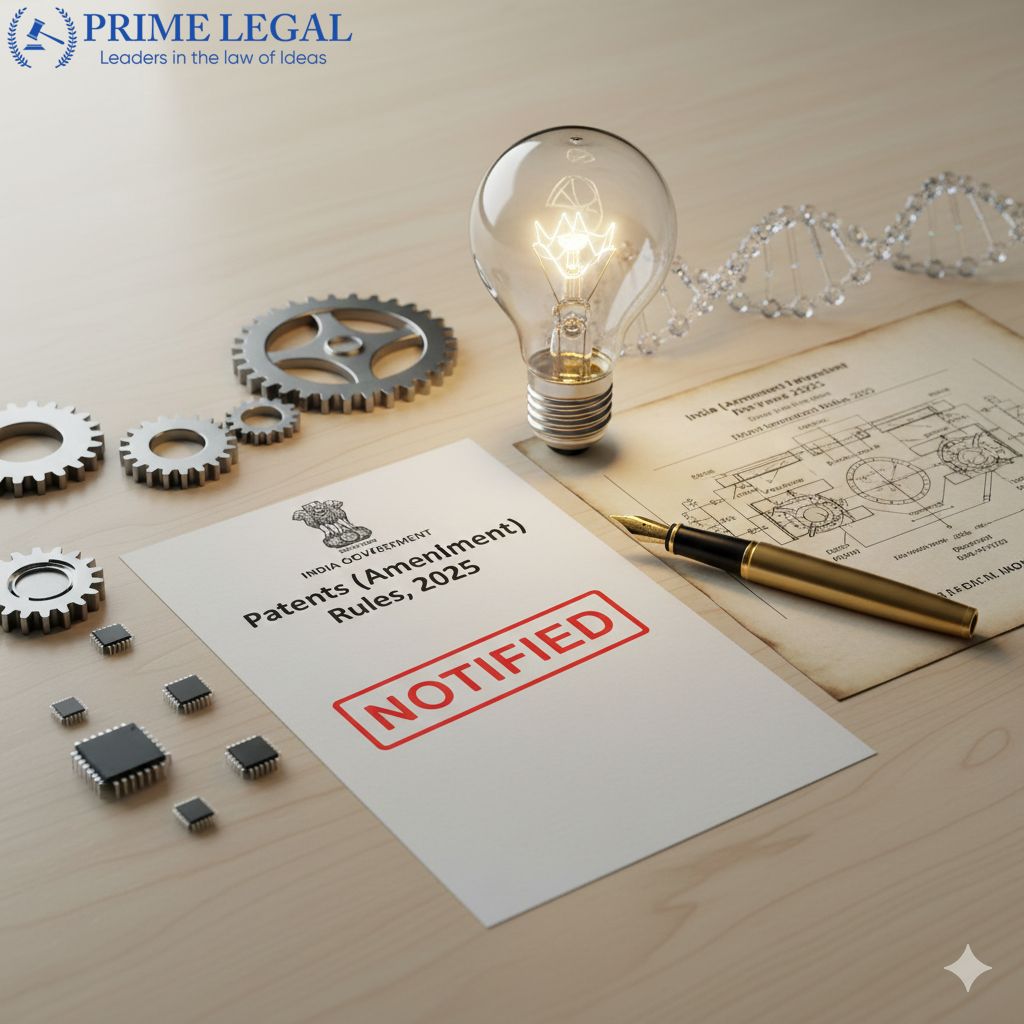INTRODUCTION
On Twenty Fifth of November, Two Thousand and Twenty – Five, the Central Government notifies the Patents (Amendment) Rules, 2025, formally amending the Patents Rule, 2003. The amendment introduces a new chapter relating to the Adjudication of Penalties and Appeals. The notification follows a public consultation on the draft published in July 2025 which introduces a new chapter dealing with adjudication of penalties and the appellate route under the Patents Act, modernises procedural forms and provides for electronic filing of complaints and appeals. The changes are aimed at operationalizing the Jan Vishwas era discriminalisation amendments to the Patents Act and at speeding up administrative enforcement.
BACKGROUND
The foundation for these rule changes was laid by the Jan Vishwas (Amendment of Provisions) Act which decriminalised certain IP offences and inserted new provisions for administrative adjudication into the Patents Act. The Government published draft Patents (Amendment) Rules, 2025 for stakeholder comments in mid – July 2025, after taking inputs into account, the Ministry finalised and notified the Rules in November, 2025. The stated policy drivers are:
- Shift from criminal prosecution to administrative penalties for certain contraventions,
- Clearer timelines and procedures for inquiry and adjudication,
- Digitalisation of filings.
KEY POINTS
- The Rules substitute a new Chapter XIV – A to set out procedures for complaints, inquiries, adjudication by an adjudicating officer and appeals to an appellate authority. This operationalizes Sections inserted by Jan Vishwas amendments.
- Complaints under this section formerly criminal must be filed electronically in specified Forms such as Form – 32 and appeals under Form – 33. The Rules streamlines service / notice requirements and electronic communication.
- The Rules specify notice periods, show – cause timelines and powers of the adjudicating officer aiming to reduce delay and ensure natural justice in administrative adjudications.
- The Rules provide the machinery to impose penalties and hear appeals in place of earlier criminal prosecutions for certain minor offences.
RECENT DEVELOPMENTS
On 25 November, 2025, the Central Government notified the Patents (Amendment) Rules, 2025 replacing the earlier Chapter XIV – A with a detailed framework for administrative adjudication of contraventions under the Patents Act. The Rules now mandate that complaints relating to unauthorised claims of patent rights, refusal to supply information, or practice by non – registered patent agents must be filed electrically in Form – 32 before the adjudicating officer.
This new system provides a structured inquiry mechanism that the officer must issue an electronic notice giving at least seven days for the alleged violator to respond, followed by a hearing where the evidence and documents may be presented. The officer may summon witnesses, adjourn hearings where necessary and may proceed ex – parte if the person fails to appear after due notice.
Once the contravention is found the officer must issue a reasoned, digitally – signed order within three months of the initial notice, with all communication made electronically through the official portal. Appeals can be filed in Form 33 within sixty days and the appellate authority is expected to conclude proceedings within six months. These Rules operationalise the Jan Vishwas Act’s shift from criminal penalties to a streamlined administrative mechanism. As the framework is newly introduced, judicial scrutiny is still awaited, and early adjudicatory orders will determine how the system evolves.
CONCUSION
The Patents (Amendment) Rules, 2025 mark an important administrative step as they convert the statutory decriminalisation into concrete procedural machinery, emphasising speedy, digital administration enforcement while seeking to preserve natural justice through prescribed notice and appeal routes. The immediate task for the right holders, patent agents and industry are revising compliance and internal audit processes, updating responses to show – cause / complaints under the new forms and timelines and preparing for likely litigation testing the contours of administrative adjudication under the Patents Act.
“PRIME LEGAL is a full-service law firm that has won a National Award and has more than 20 years of experience in an array of sectors and practice areas. Prime legal falls into the category of best law firm, best lawyer, best family lawyer, best divorce lawyer, best divorce law firm, best criminal lawyer, best criminal law firm, best consumer lawyer, best civil lawyer.”
WRITTEN BY- SUSMITA ROYCHOWDHURY


